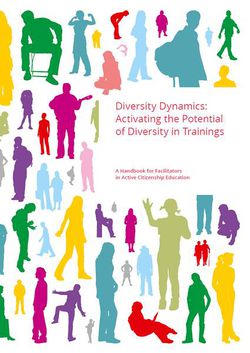To dispel a cliché, fostering empathy does not necessarily mean creating a group therapy session in which everyone shares their most painful stories from childhood and receives comforting pats on the shoulder from others. But it requires the facilitator to be honest and to be able to open themselves to sharing suitable stories from their lives, bringing examples from their own experiences, and admitting to their mistakes.
Source: RSA[1]
The Four Qualities of Empathy
Adopting perspectives
Ability to adopt the perspective of another person or recognize their perspectives as their own truth.
Avoiding judgment
Ability not to judge someone’s behavior as right or wrong in order to meet the person eye-to-eye
Recognizing emotion in other people
Accepting, that everyone has the right to feel what they feel and that those authentic feelings should be taken seriously.
Communicating this recognition
Making it clear to other people that they are perfectly entitled to their own perspective and feelings and that they have someone who can listen.
Source: Brené Brown [2]
Empathy should run in both directions, both to and from the facilitator. We can also help participants establish a connection with us by showing that, in a way, we are equally imperfect but motivated to share and willing to learn. [3]
References
- ↑ RSA (Royal Society for the encouragement of Arts, Manufactures and Commerce): The Power of Empathy];
- ↑ Brené Brown: The Power of Vulnerability; B. Brown: Daring Greatly: How the Courage to be Vulnerable Transforms the Way We Live, Love, Parent and Lead.
- ↑ Working Between Cultures/Eliza Skowron in: N. Zimmermann, H. Fahrun, E. Skowron (Ed.): Diversity Dynamics: Activating the Potential of Diversity in Trainings; Berlin 2014; MitOst; ISBN 978-3-944012-02-5
Eliza Skowron
Co-founder Working Between Cultures, born in Poland, studies at Jagielloian UniversityKraków (Polen). Facilitator and expert for constructive communication, Anti-Bias, train-the-trainer, author in Competendo.






